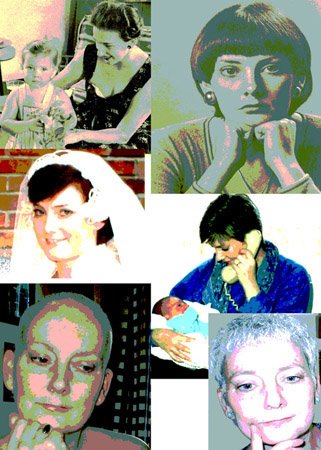Ploughing

Almost all of the county has assumed its winter garb of ploughed red clay, and in some fields winter wheat is already coming through. I had a wee look on youtube and there are lots of video clips made by petrol head farmers showing off their ploughing skills.
As a young girl I worked on a farm and I once tried my luck at ploughing, but I really wasn't very good and the farmer didn't want his neighbours to think that he had done any of that field, so I was never asked to repeat the exercise.
This is a wee poem about rooks and ploughs and a small bookmark shot of a tractor harrowing one of the fields near here.
Rooks
They tumble through the air,
like a suit of spades thrown
skywards. Their calls a raucous
counterpoint to the plough’s
ceaseless churn,as the top field
turns from shabby blonde to polished
chestnut in its corrugated wake.




7 Comments:
When I think of ploughing, I think of As the team's brass head... by Edward Thomas?
I like your rooks, though. Funny birds them, did you see the piece about them on Autumn watch: they are canny buggers.
this one?
As the Team's Head-Brass
As the team's head-brass flashed out on the turn
The lovers disappeared into the wood.
I sat among the boughs of the fallen elm
That strewed the angle of the fallow, and
Watched the plough narrowing a yellow square
Of charlock. Every time the horses turned
Instead of treading me down, the ploughman leaned
Upon the handles to say or ask a word,
About the weather, next about the war.
Scraping the share he faced towards the wood,
And screwed along the furrow till the brass flashed
Once more.
The blizzard felled the elm whose crest
I sat in, by a woodpecker's round hole,
The ploughman said. "When will they take it away?"
"When the war's over." So the talk began-–
One minute and an interval of ten,
A minute more and the same interval.
"Have you been out?" "No." "And don't want to, perhaps?"
"If I could only come back again, I should.
I could spare an arm, I shouldn't want to lose
A leg. If I should lose my head, why, so,
I should want nothing more. . . Have many gone
From here?" "Yes." "Many lost?" 'Yes, a good few.
Only two teams work on the farm this year.
One of my mates is dead. The second day
In France they killed him. It was back in March,
The very night of the blizzard, too. Now if
He had stayed here we should have moved the tree."
"And I should not have sat here. Everything
Would have been different. For it would have been
Another world." "Ay, and a better, though
If we could see all all might seem good." Then
The lovers came out of the wood again:
The horses started and for the last time
I watched the clods crumble and topple over
After the ploughshare and the stumbling team.
The First World War was the beginning of the end for so many men being on the land, as so few came back to the work.
PS, yes I saw that piece. They are very clever birds, I read Mark Cocker's book on Corvids and the whole crow family are very interesting. Jo Gibson has a lovely wee poem about a crow.
Being a farmer's daughter and as you have probably noticed through my poetry, farming is in my blood. Words like harrowing and ploughing resonate with me ... we don't have rooks, but seagulls follow the plough. A lovely wee poem and the bookmark photo is amazing!
Thanks Kay. We get seagulls too, black and white like salt and pepper.
I love your poem and the Edward Thomas one.
We don't get rooks here either, just this little corner of France that doesn't, I don't know why, perhaps it's what they do to the trees. I miss them, but the seagulls are Ladybird-Book-pretty over the ploughed soil.
Vivid and evocative - the more so for its brevity.
Post a Comment
Subscribe to Post Comments [Atom]
<< Home